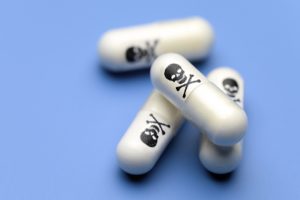
Risky Pills for a Weighty Problem
By Kelly Patricia O’Meara Published by CCHR International The Mental Health Industry Watchdog January 30, 2017 Like so many of today’s pharmaceutical chemical behavioral fixes,…


By Kelly Patricia O’Meara Published by CCHR International The Mental Health Industry Watchdog January 30, 2017 Like so many of today’s pharmaceutical chemical behavioral fixes,…
Part of the case made by U.S. prosecutors that led to GlaxoSmithKline‘s $3 billion settlement today is that the company used a network of paid experts, speaking to doctors and to the press, to promote uses of its drugs that had not been approved by the Food and Drug Administration. According to the Department of Justice’s complaint, one of those paid experts was celebrity physician Dr. Drew Pinsky, then the host of the radio show Loveline, which was also being broadcast on MTV. Pinsky has gone on to host Celebrity Rehab, Dr. Drew on HLN, and Dr. Drew’s Lifechangers on the CW.
GlaxoSmithKline Plc has agreed to plead guilty to misdemeanor criminal charges and pay $3 billion to settle the largest case of healthcare fraud in U.S. history.
The settlement includes $1 billion in criminal fines and $2 billion in civil fines in connection with the sale of the drug company’s Paxil, Wellbutrin and Avandia products, according to filings in federal court on Monday.
It’s no secret that advertising works. Big Pharma wouldn’t spend over $4 billion a year on direct-to-consumer advertising if it didn’t mean massive profits.
What is more unknown is why drug ads that sow hypochondria, raise health fears and “sell” diseases are often the most common–and effective–even when the drugs themselves are of questionable safety.
The nation’s fourth most frequent drug ads in 2009 for were Cymbalta, making Eli Lilly $3.1 billion in one year, despite the antidepressant’s links to liver problems and suicide. Pfizer spent $157 million advertising Lyrica for fibromyalgia in 2009, despite the seizure pill’s links to life-threatening allergic reactions. The same year, it spent $107 million advertising the antidepressant Pristiq, even though it also had links to liver problems.
(NaturalNews) If you have ever seen a commercial for a pharmaceutical drug, you are probably familiar with the long list of dangerous side effects that are rattled off in the last five seconds of the advertisement, just after viewers are told how Drug “X” is going to save their lives, improve their memories or give them unlimited energy. What was that? Did he just say that pill might cause bleeding out of my eyes? Drug companies do a great job – and spend a lot of money – to ensure that most consumers aren’t aware of the harmful side effects of common drugs prescribed for conditions like depression, heart disease, arthritis, ADHD or high blood pressure. Unfortunately, the result of this has created a society where the average person with a health problem is captivated by the promises delivered in clever advertising. There is a drug for everything? All I have to do is talk to my doctor? How convenient.
But what if there was a way to take back control of our lives and our health? What if, despite talking to your doctor, you still have questions or concerns about the safety of a drug?
The Citizens Commission on Human Rights International (CCHR) has a database that allows you to do just that. It’s called the Psychiatric Drug Database, and it allows consumers to research the potential side effects of common psychiatric drugs, such as Ritalin or Wellbutrin.